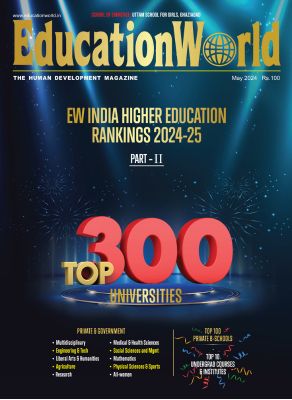 Rajiv Desai is president of Comma Consulting and a well-known Delhi-based columnist
Rajiv Desai is president of Comma Consulting and a well-known Delhi-based columnist
The entry of this sophisticated communications discipline dovetailed with the big bang economic reforms introduced in the 1991 budget. That was when the government introduced major changes to the industrial licensing regime
Many of us professionals on the frontlines of public relations consulting were justifiably proud to have introduced a whole new discipline that would help Indian business firms reach out to target audiences with messages about their products, services and practices. Until then, this modern-day approach to promotion was hamstrung by a submissive corporate culture of pleasing bosses and indulging their fantasies. Advertising was the big gun, dealing with the external environment: markets, recruitment, finance, labour, government. That changed in the final years of the 1980s.
The entry of this sophisticated communications discipline dovetailed with the big bang economic reforms introduced in the 1991 budget. That was when the government introduced major changes in economic policy, principally the industrial licensing regime. Liberalisation, privatisation and globalisation were the new mantras that dismantled what was mocked as “licence-permit-quota raj”.
Under the new policy, the economy surged. The resultant increase in GDP growth rate swelled the ranks of the country’s middle class that had been driven by the political leadership to first spread the message of freedom and then of economic reforms. The growth of GDP vaulted what a sarcastic economist described as the “Hindu rate of growth”.
Fast forward to the second decade of the millennium and we witnessed a profusion of business ventures, domestic as well as global. The change was visible in towns and cities and even in villages. Store shelves groaned under the influx of new products, indeed even the way of shopping changed to a modern idiom encompassing grocery stores, shopping carts, billing counters, credit and debit cards, discounts, loud advertising… The mercantile culture that drew Europeans to India from the 17th century onward was back with a bang. Except they came to trade and stayed to rule until the mid-20th century.
In the process, India learned a lot about modernity: trade, governance, politics… and also learned the utility of having a PR program to showcase its prowess and explain problems and muster support from the masses. It was going well for the country until those who flocked to the BJP, loudly proclaimed Hindutva as a new ideology to replace a defeatist mindset in which the West was given undue prominence over native culture.
This message found acceptance at the ballot box. In 2014, a BJP government was voted to power and given a mandate to herald Hindutva. The party made a bunch of commitments to preserve, protect and defend democracy. But without the basic skills of governance, it found the going difficult because of the huge diversity of India, its uneven levels of development, a population keen to experience the good life that had been promised in over-the-top rhetoric deployed by the BJP leadership.
Having learned the art of deception in its no-holds-barred campaign for power, the BJP seems to have found it easier to dodge and weave around its campaign promises. That’s because its members don’t hold ethics or decency as important in the hierarchy of values. What’s more, apparent lack of understanding of how policy is made, leads to huge confusion about positions the government articulates. From prime minister Narendra Modi downwards, attitudes are often simplistic.
For instance, in an address early in his term to school children, Modi said there’s no such thing as climate change. It’s just that as we grow older, we feel colder. He’s also made other comments about Indians doing nothing to harm nature. The sun is our grandfather, the earth is our mother, the moon our uncle: that’s what Indians call them, he said. He also told eager beaver television reporters that following a terrorist attack in Kashmir, he had suggested the Indian Air Force could use cloud cover to carry out raids in Pakistan: that way they could avoid radar detection.
Amazingly, India’s normally loud and boisterous media completely ignored these absurd comments. Just as it overlooked the fact that he showed up much after a train accident in Gujarat took several lives because he had campaign stops to make. In much the same vein, they overlook his eager-beaver hugs of visibly uncomfortable leaders at international meets, not to mention the faux pas with the Pope; he could be the only head of government who hugged the supreme leader of the Catholic church.
And yet Modi continues to enjoy widespread support. People believe he will win a third term in 2024. What is it about him that leads to this conclusion? Both supporters and opponents believe this. Is this an expression of support? Or is it a vote of no confidence in the alternatives available to voters?
Many of his rivals believe that in his years in power, the PM has completely undermined the institutional structures that won India pride of place in the world — as a nation that defied international norms, a poor nation that stood proud as a democracy among the authoritarian ruins of former colonial conquests.
That anomaly seems to have been sorted out. India has taken its rightful place among Western stereotypes.




























